- Home
- Jason Pinter
The Fury hp-4 Page 4
The Fury hp-4 Read online
Page 4
Stephen Gaines, 30, found shot to death in Al phabet City apartment by Neil deVincenzo I'd met Neil deVincenzo about a year ago. He covered the crime beat, had some good connections on the force.
Because of my tenuous relationship with the NYPD, they'd often talk to him rather than me. He was a good guy, around forty-five, and in terrific shape. He'd been a boxer in the navy, even had the tattoo of a pugilist on his upper biceps, though only a few of us were privy to the knowl edge, and that only came out after a few rounds of drinks.
The article was brief, perfunctory. There wasn't much to the story to report. Gaines was found murdered, two bullet wounds in his head. There were no suspects, no leads. And no locations or whereabouts for his mother, Helen Gaines. Sevi Makhoulian was quoted, saying, "No comment."
I wondered where Helen Gaines was. If she knew her son was dead. And if so, why Makhoulian couldn't locate her. I wondered if she knew her son was in trouble. And I wondered if she knew about me.
Our flight had one layover in Chicago. We would then go on to Portland, and rent a car for the drive to
Bend. The plan was to stay in Bend over the long weekend. I didn't have any desire to spent any more time with my father than was absolutely necessary to get all the details about his relationship with Helen Gaines and her son. After that, I figured it could be good for us to spend an extra day or two in the city of my birth. It had been the better part of a decade since I left for college,
I was curious to see how much had changed.
After a half-hour delay we settled into our seats.
Amanda took the middle, I got the aisle, and my legs thanked me. I took out a paperback novel, a thriller to help pass the time, and noticed Amanda reach into her knapsack and take out a book.
The cover seemed familiar. It was worn, the spine cracked, color faded. And when I look closer, I under stood why.
The book's title was Through the Darkness. It's author was Jack O'Donnell. The book was a chronicle of the rise of crack cocaine and the massive crime wave it spawned that nearly tore New York apart in the '70s and '80s. The book was nominated for the Pulitzer
Prize, though it lost out to a book that, as far as I knew, was no longer in print. Through the Darkness was the very book that officially gave Jack O'Donnell the moniker of my living hero.
Amanda noticed me staring. She smiled nervously.
"You talk about this book a lot," she said. "I just want to understand you better. And Jack, too."
"It's a great book," I said. "Holds up like it was written last year. I really appreciate this."
"Hope you don't mind that I took it from your shelf."
"Are you kidding me? You don't know how happy this makes me."
"Don't be silly, I wouldn't let you do this alone."
"Not the trip," I said. "The book. It means a lot that you want to know more about what matters to me."
"Why wouldn't I?" she asked, confused. "I mean, we're together right? What kind of relationship would it be if neither of us cared about what mattered most to the other?"
I felt silly. I'd never read a book because I thought it meant a lot to Amanda, and for the most part she didn't like to talk about her work at home. Working at the
Legal Aid Society, she had to deal with some of the most horrific cases of child abuse. She saw things that would stay with you. I didn't blame her for not wanting to bring that kind of work home with her.
"Is there anything I can do?" I asked, feeling somewhat stupid. "You know, to know more about you?
What makes you tick? Does Darcy Lapore have a memoir out or something?"
Amanda laughed. Darcy Lapore was her coworker, a professional socialite-in-training. And considering how much value was inherent in that job title, especially in New York where the title socialite was practically a blank check, it was likely only a matter of time before
Darcy's obsession with jewelry, makeup and shoes that cost more than my rent were bound to find the printed word, or more likely, a reality series. It was no doubt that vacuousness and superficiality were the country's drug of choice, and self-promotion was the new black.
"Tell you what, Darcy's husband has enough money that they could pay you to ghostwrite it and you wouldn't have to work at the Gazette until your midthir ties."
"Hmm…that's an intriguing possibility. Provided I can get past the whole 'crying myself to sleep every night' problem that would come with that."
"Would leaving your job really do that to do?"
Amanda asked with a mixture of rhetoric and actual cu riosity.
"I think so," I said. "I mean I believe, really believe, this is what I was meant to do."
"Must be a great feeling to know what you're meant to do at your age," Amanda said. She reached into her purse, took out a stick of gum and popped it into her mouth. The plane began to back up, then we turned and approached the runway. Amanda began to chew her gum with a fury rarely seen outside of nature videos where a gang of lions rip a poor gazelle limb from limb.
She looked at me, saw I was staring. "My ears pop," she explained. I nodded, smiling. "Come on, we both know you snore like a chain saw. We both have our little things. "
"I wasn't judging, but thanks for bringing up a sore subject. You know I got tested for apnea a while back.
It came back negative."
"Maybe you should get a second opinion before I
'accidentally' smother you one night," she said, settling back into her seat, closing her eyes. "Okay, I'm going to sleep now. If you're going to snore, it'd be sweet if you wouldn't mind sitting in the bathroom."
"It's reassuring to know you always have my safety in mind."
"Oh, come on," Amanda said. She sat up, leaning over and gave me a long kiss on the lips. I tasted her
ChapStick. Cherry. Delicious.
When she finished we were both smiling. And the old woman across the aisle was grimacing. "If you two are even thinking about joining that so-called MileHigh Club," she said, "I'll call the flight attendant and have you ejected at 30,000 feet. Don't think I won't be watching you."
We both nodded, embarrassed. Actually, the thought had crossed my mind, but with Mother Teresa sitting there I wouldn't want to be banned from the airline before the trip back.
"Have a good nap, babe," I said, squeezing Amanda's hand. "See you in Bend."
"I hope we find out more about Stephen Gaines," she said through a yawn.
I nodded, watching Amanda drift off to sleep, not knowing just how much there was to learn.
6
We landed in Portland at five o'clock, or eight o'clock
New York time. We'd both slept a good portion of the flights. While Amanda was awake, she tore through
Jack O'Donnell's book with incredible zeal. It thrilled me to see that she was clearly enjoying the book. It brought back memories of the first time I'd read it, in junior high. I spent the next week plowing through every O'Donnell book I could find at the Deschutes
County Library. My teachers were less than impressed, since I'd read the books in lieu of completing my actual schoolwork. Safe to say O'Donnell's tomes taught me more about myself and what I wanted to be than years of school could ever do.
After landing, we rented a car, a nice little compact that probably got twenty-eight miles to the gallon.
Given how you practically had to sell a kidney to fill up a tank of gas these days, I would have seriously consid ered a motorized skateboard if Hertz had one available.
The drive to Bend took just about three hours. Once we merged onto US-20, I began to feel my stomach rumbling and beginning to churn. I wasn't quite sure what to expect. I hadn't set foot in Bend in nearly ten years. The same amount of time had passed since I'd last seen my parents. And while some children might find a hole in their heart, in their soul, due to this absence, mine was finally able to fill up.
I wondered if coming back here was a good idea, whether it was best to let dead dogs lie. Yet that image of Stephen Gaines lying on
an examining table, his head nearly blown apart, made this trip a necessity.
Anger had driven me away from my home. Now the same was leading me back.
As we approached the city limits, I could immedi ately tell that the last eight years had changed my hometown a great deal. And all the changes looked to be for the better.
To the west, the spectacular beauty of the Cascade
Mountain Range. The lush green foliage was tipped with hints of snow from winter. I could make out the magnificent peak of Mount Bachelor, rising to a snowcapped point. I rolled down the window to breathe in the fresh air. It was warm, dry and clean. For a moment
I considered what I'd given up. Part of me missed the air, the scenery. Being able to see for miles, the horizons rising blue and bold above the skyline. For everything
I loved about New York-the hustle and bustle, the thriving heart of media and business, the diversity of its inhabitants-I missed the open world.
By seven-thirty, we were approaching Eastview
Drive, the street in the northeast section of Bend where
James and Eve Parker had lived for nearly thirty years.
I still didn't have the timeline sketched out completely, so I wondered if my father had had his affair with Helen Gaines in the very house I'd grown up in. Perhaps a quickie in the room that later became my bedroom.
Every moment spent thinking about it made me more angry. I'd have to restrain myself once I saw him in person.
I turned the car onto Eastview Drive tentatively, slowing the car down as my old house came into view.
The first eighteen years of my life forgotten and now remembered. A bad dream interrupting a peaceful sleep.
The dark green paint hadn't been refreshed in years.
The two-car garage was still surely filled with old records, antiques my parents had grown weary of and empty photo albums. A black 1994 Chevy C/K 1500 flatbed truck was parked outside the left garage. The paint was scratched and faded, but I had no doubt the old truck still purred like a kitten. The grass was fairly short, so as least they cared about some sense of decorum, and the cobblestone walkway leading up to the front door was still there like the day I left. Much had changed in Bend over the last decade, and it seemed as if my parents had resisted that change as much as possible.
I steered the car into the driveway, parking next to the flatbed, then turned off the engine and sat there in silence. Amanda did as well. Neither of us said a word for a long time. Finally Amanda said, "Henry, do you want to do this? We can go to a hotel, wait until you're ready."
"I'm ready," I said. "Or at least I need to be."
I opened the car door, cautiously stepped out as though expecting the driveway to swallow me whole.
Amanda climbed out, and we walked up the cobble stone path to the front door. A faded yellow button popped out like a pimple to the right of the front door.
I could see a faint glow from inside one of the windows.
Somebody was definitely home.
I looked at Amanda, smiled weakly, tried to gather my strength and rang the doorbell. The bell startled me for some reason, like I wasn't ready to accept that there was actually a person who lived here.
I hadn't phoned ahead because I didn't want him to know I was coming. Didn't want to give him a chance to think, to make up excuses. I wanted him face-to face. To see how he reacted. If he did at all.
I heard footsteps, someone mumbling under his breath. I shifted my weight from foot to foot, trying to forget the resentment I had toward this man. Knowing the pain he'd put us all through. Knowing there was a young man lying in New York with two bullets in his head, a man who my father could, like me, call his blood.
The front door opened with a creak. A man stood in front of me, rubbing his eyes. He looked older than I remembered, lines creasing his face like small ditches, a thin coat of gray stubble covering the worn skin.
When his eyes came into focus and he saw me, the man's mouth opened slightly, his reflexes working faster than his mind was able to keep up with. He shook his head slightly, unsure.
I took a step forward and said, "Hi, Dad. It's been a while. It's Henry. Your son who's still alive."
7
We sat there in his living room. James in an easy chair, me and Amanda on a faded, stained, uncomfort able brown couch. It was probably uncomfortable because nobody ever sat in it, nobody ever told James the springs bit your legs. My father wasn't exactly someone who entertained. James Parker was wearing a tattered light blue bathrobe, the same one he used to wear years ago. It was worn. Threads hung out, waiting to be yanked free. The robe looked as if it was now worn out of convenience rather than comfort. A skin that couldn't be shed.
Though it had been eight years since I'd seen my father, it felt like longer. He looked as though he'd aged twenty. The brown hair-the same color hair I'd inher ited-was streaked with gray. The skin around his neck had begun to sag into full-on jowls, and whatever was left of the muscle tone in his forearms had turned soft. His eyes were lined, as though tired of keeping up the appear ance of the rebel he'd long considered himself to be.
Maybe thirty years ago James Parker was a man to be feared and possibly even desired. Now, though, he was just an angry old man with a distant wife and an es tranged son. A man whose indifference to any life but his own had driven away everyone who'd ever cared for him, driven him to the point where his very voice brought up anger inside of me.
When I was hidden in a dingy building and needed to hear something, anything, to keep me going, I called my father. I'd spent much of my adult life trying to hard to distance myself from him and what he repre sented. My anger had, in essence, become a fuel.
Recently, the fuel had begun to burn itself out. But sitting there, watching this man in front of me, knowing what he'd done in his past, knowing just how little of the story I knew, it was all I could do not to leap up from my chair and knock him head over heels, that ugly bathrobe flailing like paper in a gust of wind.
Those striking green eyes kept flicking to me, then to Amanda, then back to me. Anytime he had unex pected visitors, James Parker figured it was either a court summons or an IRS audit. Amanda sat leaning forward, eyeing James, as though trying to understand an entire family history through those eyes.
He held a beer in his hand. The bottle was halfempty, and the bottom half was covered by his hand, which was sweating. The air was hot, blowing from some unseen fan that appeared to simply recirculate the warm air over the whole house. He eyed me with a look of confusion and contempt.
"Where's Mom?" I asked.
"Bridge lesson," he said. "Plays with her girlfriends once a week. Whatever keeps her busy and out of my hair."
I bristled at the comment. "When will she be home?"
I hated being here, hated that he'd even put us in a situa tion where we needed to be. But my hatred for this man couldn't get in the way of finding out the truth about
Stephen Gaines. About myself.
"Listen, I don't know what you want from us," he said, swigging from the bottle, grimacing because the beer had likely grown warm. Not quite the "you never call" line you'd expect from a parent you hadn't seen in years.
"I just want to know the truth about you and Helen
Gaines. And how much you know about Stephen."
"What does it matter anyway?" James said, looking off at the wall. "It was years ago. Before you were even born."
"I know that," I said, anger rising inside me. "Did you ever think to tell me I had a brother somewhere?
You never thought that I might be interested to know that? Never occurred to you, huh?"
"He wasn't your real brother," James said slowly.
"Helen was not your mother. I never considered myself that boy's father."
"What the hell does that mean?"
"She wasn't supposed to keep the baby," my father said. I heard Amanda gasp under her breath. So far my father had barely looked at her, like Amanda was a referee, a third wheel, s
omething to be ignored. I hadn't bothered introducing her because I knew he wouldn't care.
For a brief moment I glimpsed a flicker of pain behind those eyes. A memory he thought forgotten had come back to him.
"But she did," I said. "And then she left. Tell me what happened."
"I don't need to tell you anything," he snapped suddenly, the beer sloshing liquid onto his bathrobe.
"It's thirty years ago. It's over."
"It's not over," I said, my voice quivering. "Your son was found dead in a seedy apartment this week. It's not over. You were the boy's father. I know it meant nothing to you, but it damn sure meant something to him, and to
Helen Gaines. And it damn sure means something to me."
"What?" he said, lurching out of his chair, knocking the bottle flying. I recognized that look. The look of rage, the look that said he didn't owe anybody anything.
"What does it mean to you? You never knew him. I never knew him. He's a fucking stranger. What, just because you share some, like, microscopic strand of
DNA in common all of a sudden this matters to you?
Please. Spare me, Henry. Go back to New York. Go back to your big city and do whatever you do there." He pointed at Amanda. "And take this…whatever… with you."
"This is Amanda," I said. "And she's given me more in just a few years than you have in a lifetime."
"Are you finished?" he asked, sitting back down.
"Because I have a league game tonight and I bowl like crap when I'm not prepared."
"Right," I said. "Your bowling league. You cared more about those pins than you did us."
"Pins don't talk back," he said. "Pins don't waste your hard-earned money on books that don't put food on the table. Speaking of that, will you be joining us for dinner?"
"I'd rather break bread with Bin Laden," I said.
"How long were you sleeping with Helen Gaines while you were with Mom?"
James sighed, leaned back, searched his memory. He spoke as though this was a mere trifle to him, like I'd asked what he had for lunch yesterday.

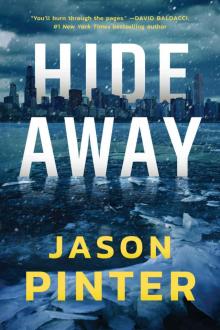 Hide Away (A Rachel Marin Thriller)
Hide Away (A Rachel Marin Thriller)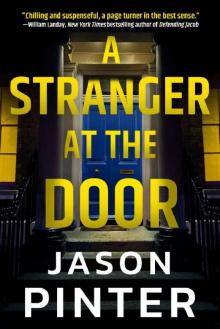 A Stranger at the Door (A Rachel Marin Thriller)
A Stranger at the Door (A Rachel Marin Thriller)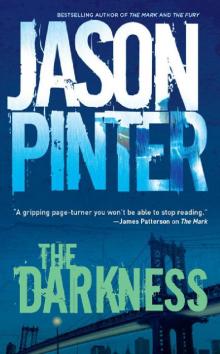 The Darkness hp-5
The Darkness hp-5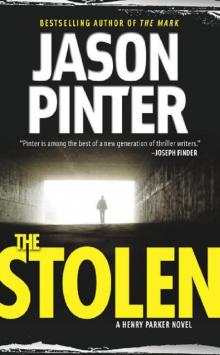 The Stolen hp-3
The Stolen hp-3 The Guilty hp-2
The Guilty hp-2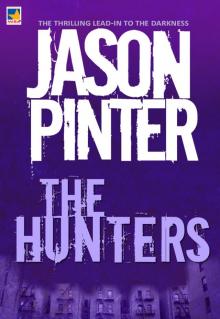 The Hunters
The Hunters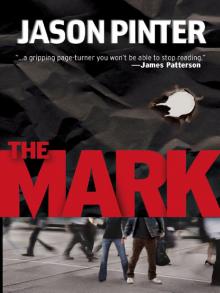 The Mark hp-1
The Mark hp-1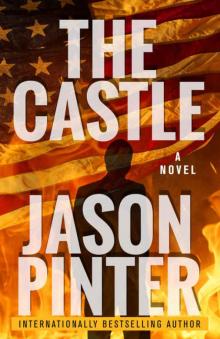 The Castle: A Ripped-From-The-Headlines Thriller
The Castle: A Ripped-From-The-Headlines Thriller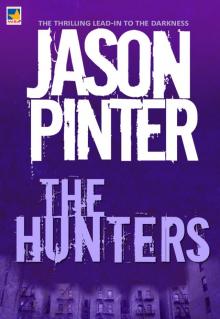 The Hunters (henry parker)
The Hunters (henry parker)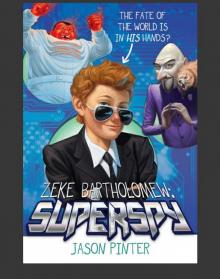 Zeke Bartholomew
Zeke Bartholomew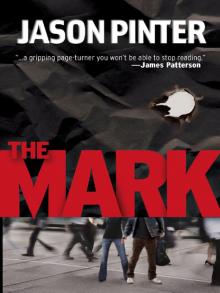 The Mark
The Mark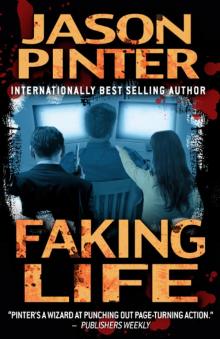 Faking Life
Faking Life![[Henry Parker 01.0] The Mark Read online](http://i1.bookreadfree.com/i2/04/08/henry_parker_01_0_the_mark_preview.jpg) [Henry Parker 01.0] The Mark
[Henry Parker 01.0] The Mark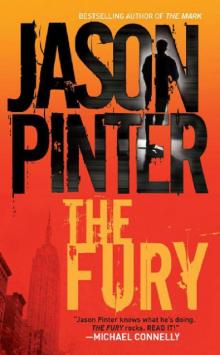 The Fury hp-4
The Fury hp-4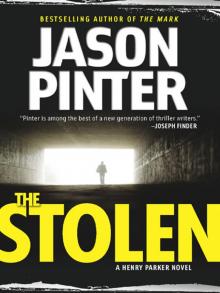 The Stolen
The Stolen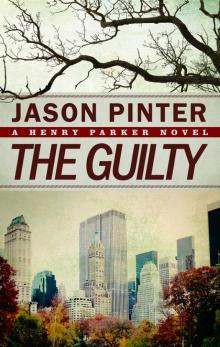 The Guilty
The Guilty